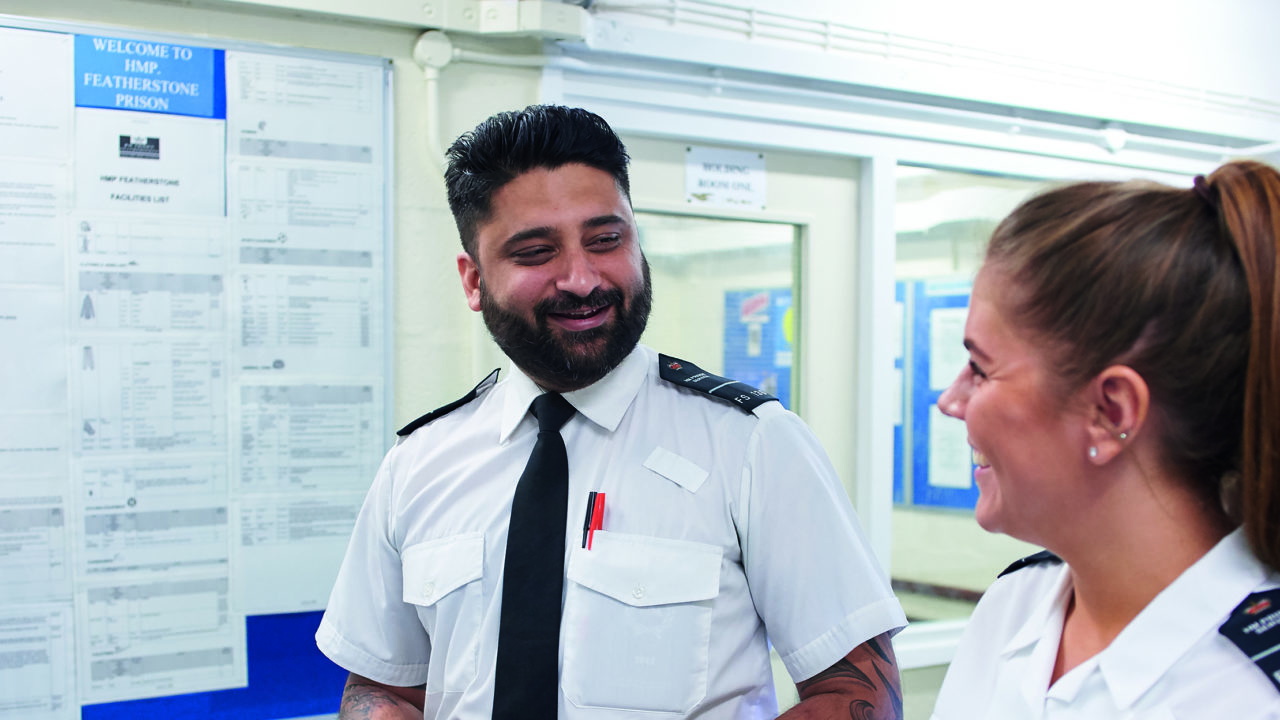
Working behind bars
Many of the valuable skills Service-leavers bring back from the Forces can be easily transferred to a career in the prison and probation service.
Her Majesty’s Prison & Probation Service (HMPPS), created in April 2017, oversees 121 prisons and employs over 42,000 staff across England and Wales. Although prison is a punitive measure, the modern prison service is more focused on improving the rehabilitation of offenders and are currently carrying out huge system reforms.
The reforms aren’t going to change the fact that the role of prison officers is demanding and challenging. Indeed, current staff will tell you that no two days are ever the same but at the same time that the service rewards performance, invests in your career development and cares about your wellbeing, both professionally and personally. It stands to reason, since staff that are demotivated or fatigued are not likely to be able to deal with the responsibility of making real change to people’s lives.
A career in the prison service is based on, and starts with, training and support. New prison officers start their careers with an immediate 12 weeks of training, when you’ll get a good feel for the environment and people you’re working with. This will include taking on the Prison Officer Entry Level Training (POELT) course. (Although this is likely to take place away from your home, you will receive full pay and expenses.)
Skills
Prison is an environment like no other and so the training is based around specific principles of the prison officer’s role. These include how to look after people in custody, search and security procedures as well as de-escalation techniques. Service-leavers are likely to recognise some of these skills as familiar and won’t be surprised that one prison officer said that: “90% of this job is talking and providing a positive outlook.” Once you’ve completed the course you’ll receive an NVQ Level 3 Diploma in Custodial Care.
The investment in your training will continue throughout your first year, which is a probationary period. (You may also be required to attend a further two-week residential course if you work in a high-security prison.) Further to that, training opportunities are presented to officers throughout their careers with some courses enabling them to become specialists in working with vulnerable prisoners or become a dog handler or train as a physical education instructor and so on.
Working as a prison officer is a varied occupation where you’ll work with people from all kinds of backgrounds to create a safe environment and help change lives for the better. Duties include checking cells for prohibited items such as phones, or checking prisoner numbers on the wing but the general focus is your part in the life of an offender, helping them to learn and develop new skills to give them a chance to succeed when they’re released.
Working conditions
Most prisons work with a changing shift pattern of 39 hours a week. This can include some nights, weekends and public holidays (although these days are added to your holiday allowance).
Shifts usually follow regular hours, although the start and finish time may vary depending on the prison.
Other benefits include 12 weeks paid training and 25 days holiday per annum and a starting salary of £22,000 to £31,000 per annum, depending on where you are based.
Types of prisons
Prisons are split according to male, female and young offenders. Some prisons serve local courts and hold prisoners before, during and immediately after a trial. Others have long-term prisoners serving out the majority of their sentence.
- Category A – High-security prison – houses offenders that would pose the most threat to the public, the police or national security should they escape.
- Category B – Core local prison – houses offenders that are taken directly from courts in the area, either sentenced or on remand.
- Category C – Training prison – provides offenders with opportunities for developing skills so they can find work on release.
- Category D – Open prison – allows offenders to spend most of the day away from the prison carrying out work whilst on licence.
- Young offender institution (YOI) – prisons that house offenders aged between 18 and 21.
Opportunities near you
To find employment opportunities near you, visit the searchable website page of the HM Prison and Probation Service at:
www.prisonandprobationjobs.gov.uk/prison-officer/find-a-job/
Other roles you might consider:
Operations Assistant
Play a crucial role in keeping prisons safe and running smoothly.
Youth Custody Prison Officer
Young people under 18 who have been remanded or sentenced to periods of detention by the courts are held in specialist youth custody locations. As a youth custody prison officer, you’ll learn specialist skills and techniques for working with young people between ages 12 to 18 years in custody, to learn skills for a crime-free life.
Forensic Psychologist
Assess risk and treat behaviour to support the rehabilitation of offenders.



